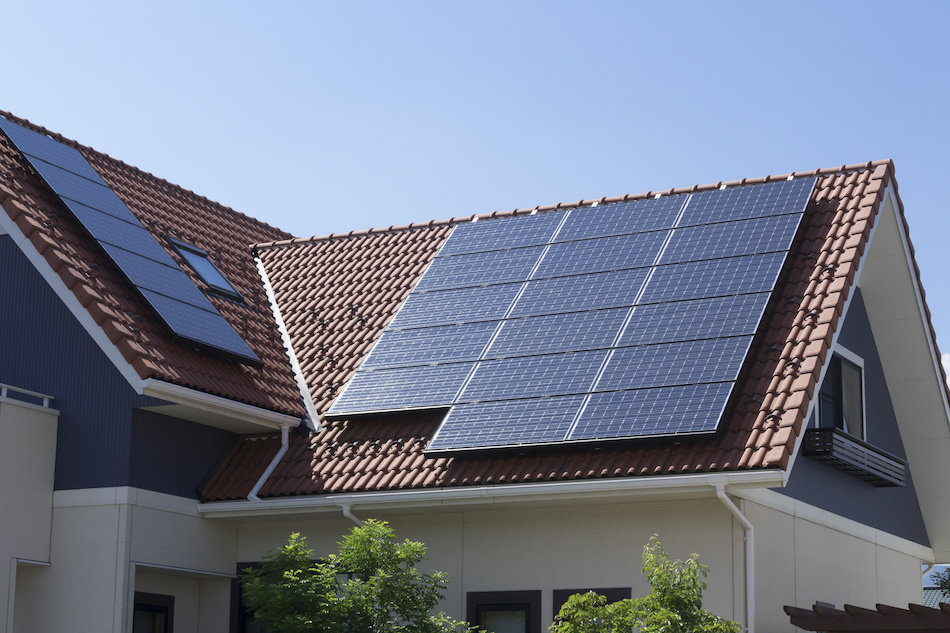Are Solar Panels Worth the Investment?
Posted by Justin Havre on Friday, January 4th, 2019 at 10:15am.
 In a country like Canada, it may seem as though there's not enough sun to justify the cost of installing solar panels. However, homeowners may be surprised to learn that the technology behind solar panels has improved enough to benefit more areas than just the sunnier Southern climates. Understanding the benefits of solar panels begins with assessing both the financial and environmental impact of investing in green energy.
In a country like Canada, it may seem as though there's not enough sun to justify the cost of installing solar panels. However, homeowners may be surprised to learn that the technology behind solar panels has improved enough to benefit more areas than just the sunnier Southern climates. Understanding the benefits of solar panels begins with assessing both the financial and environmental impact of investing in green energy.
Initial Costs
The amount a homeowner spends on their solar panels depends on the square footage of the roof, the architectural layout of the home, and the vendor they choose. All in all, it can cost anywhere from $15,000 – $30,000 to install. And while this may seem steep, Canada has been proactive about their commitment to green technology. Homeowners will usually have access to both tax incentives and financial rewards that will significantly cut back on the total cost of the project.
Each province sets their own rules, so homeowners may need to do some research to find out how much they'll spend. As far as recouping the costs through their electrical bills, experts say that homeowners should play to stay in their home for an average of 7 – 20 years before they fully recoup the costs and start turning a profit (so to speak) on their utility costs.
Trends in Solar Power
The popularity of solar panels in Canada has caused the market to react with plenty of competition. As more green energy companies spring up around the country, the efficiency of the panels has increased while the prices have decreased. In fact, prices have already plunged by more than 50% with experts from the Canadian Solar Industries Association predicting that residents in Ontario could start to see financial benefits in as little as five years—even without a subsidy.
Common Incentives
While incentives vary across the country, the most common is a net metering program. When the meter shows that residents have saved more energy than they've consumed, power companies will work with homeowners to either credit their future bills or cut a cheque for the extra energy. In Ontario, this transaction translates to $.54 for every kW hour, but the rates will be different depending on where the home is located. Electricity rates have been steadily rising at about 2% a year, which can make solar panels an even smarter long-term investment.
The Benefits of Community
Despite the short-term tax incentives and long-term financial savings of solar power, not everyone has the financial standing to afford the full cost of the panels. If you happen to fall into this camp, community solar may be able to help. With this method, residents in an area combine their money to purchase multiple solar panels that can be grouped together. The result is more electricity even on cloudier days.
This program is so new that it's not widely practiced in Canada or the US, but there has been more awareness from city officials regarding its potential benefits. Community solar would undoubtedly be a major project for residents to take on, but it can also be the key to opening up solar panels to all property owners rather than a select few.
In addition, community solar can extend the distribution of energy to buildings that may not meet the zoning requirements for solar panels. It can vastly decrease the utility bills of those with older homes or even renters who want to be a part of green energy initiatives. If a homeowner is dedicated enough to the cause, they may be able to rally the support they need to petition their city officials to put the project into motion.
Dissecting the Future
Homeowners can expect to see the resale value of their home increase between 3–4 percent, or at least $6,000 on a $200,000 home. It may not seem like a lot but added to the other financial incentives, it can certainly provide yet another reason to choose solar panels. The more efficient green energy becomes, the further we can all take the technology. Many experts believe it won't be long before solar panels can produce enough to store large quantities of energy for future use. In fact, some predict that homeowners will be on full battery systems as early as 2025.
The real value of solar panels lies in protecting future generations, but there are practical matters to consider before a Drake Landing homeowner decides whether or not upgrade their roof to it can support the full weight of the panels. Understanding the real risks and rewards will make it easier to decide if panels are right for you.
